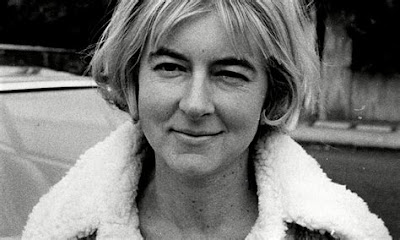c 1966
THE SOLITARY'S BEDROOM
Now for the night, liquid or bristling!
When owls make the ink squeak at my window
And my bedroom that can bone my body of its will,
Drinks out my brains on pillows.
Like a bather caught and skinned by rollers
I shall toss for an eternity in surf,
When the air-eating spirit in my nostrils
Is maddened by its heavy coat of earth!
Now for your rest, eyes where my passions lay
Waterlogged in flashing muscles all day
Well below the waterline and plotted in their acids,
Salt mortice sets your lids.
Baked on Hell's rubbish heap I go on smouldering
With my spirit at its bread of breath
Incapable of beating out the flames! And hatches
Are raised cautiously by all the sense…
O once you have taken this draught of black air
You would be glad of infinity to get your bearings!
BEDOUIN OF THE LONDON EVENING
Ten years in your cafés and bedrooms
Great city, filled with wind and dust!
Bedouin of the London evening,
On the way to the restaurant my youth was lost.
And like a medium who falls into a trance
So deep, she can be scratched to death
By her familiar — at its leisure!
I have lain rotting in a dressing-gown
While being ravaged (horribly) by wasted youth.
I have been young too long, and in a dressing gown
My private modern life has gone to waste.
Notes on Cafés and Bedrooms
(1963)
The following information appears on the website of The Poetry Foundation. [It is re-posted here for information purposes only and, like the poems re-posted above, remains its author's exclusive copyright-protected intellectual property.
English poet Rosemary Tonks was born in Gillingham, Kent. Her father, an engineer, died in Africa before Tonks's birth and she was sent to boarding school as a young girl. In the late 1940s, Tonks married Michael Lightband, also an engineer. The couple lived in Calcutta, where Tonks had paratyphoid fever, and Karachi, where she contracted the polio that withered her right hand. Tonks taught herself to write and paint left-handed and wore a black glove on her right hand. After a stint in Paris, the couple returned to London in the mid-1950s and Tonks began mixing with literary society. During this period, Tonks wrote two books of highly acclaimed poetry, Notes on Cafés and Bedrooms (1963) and Iliad of Broken Sentences (1967). Tonks claimed affiliation with French poets such as Baudelaire and Rimbaud, and her poetry was edgy, metropolitan, and laced with acerbic wit. Critic Cyril Connolly noted then that 'Miss Tonks's hard-faceted yet musical poems have unexpected power,' and she was generally considered one of the best female poets of her generation. Tonks also wrote six novels, including Opium Fogs (1963) and The Halt During The Chase (1972), and reviewed widely.
Her mother's sudden death in 1968 sparked a spiritual and personal crisis in Tonks. A series of personal catastrophes followed, including the near-permanent loss of her vision and the collapse of her marriage. Tonks's decades-long search for spiritual truth led her through a variety of practices, religions, and gurus, though she eventually found comfort in the New Testament. In 1980 she moved to Bournemouth, England, where her aunt lived, and became increasingly reclusive. Tonks burned her last unpublished novel manuscript along with a collection of priceless artifacts from the Far East bequeathed to her by another aunt. In October of 1980 she traveled to Jerusalem to be baptized. Going by her married name, Mrs Lightband, and for the most part eschewing her former life, she lived in Bournemouth until her death in 2014.
Use the links below to read more poems by British poet and novelist ROSEMARY TONKS and several intriguing posts about her posted on the consistently interesting 'forgotten literature' website NEGLECTED BOOKS:
You might also enjoy:

No comments:
Post a Comment